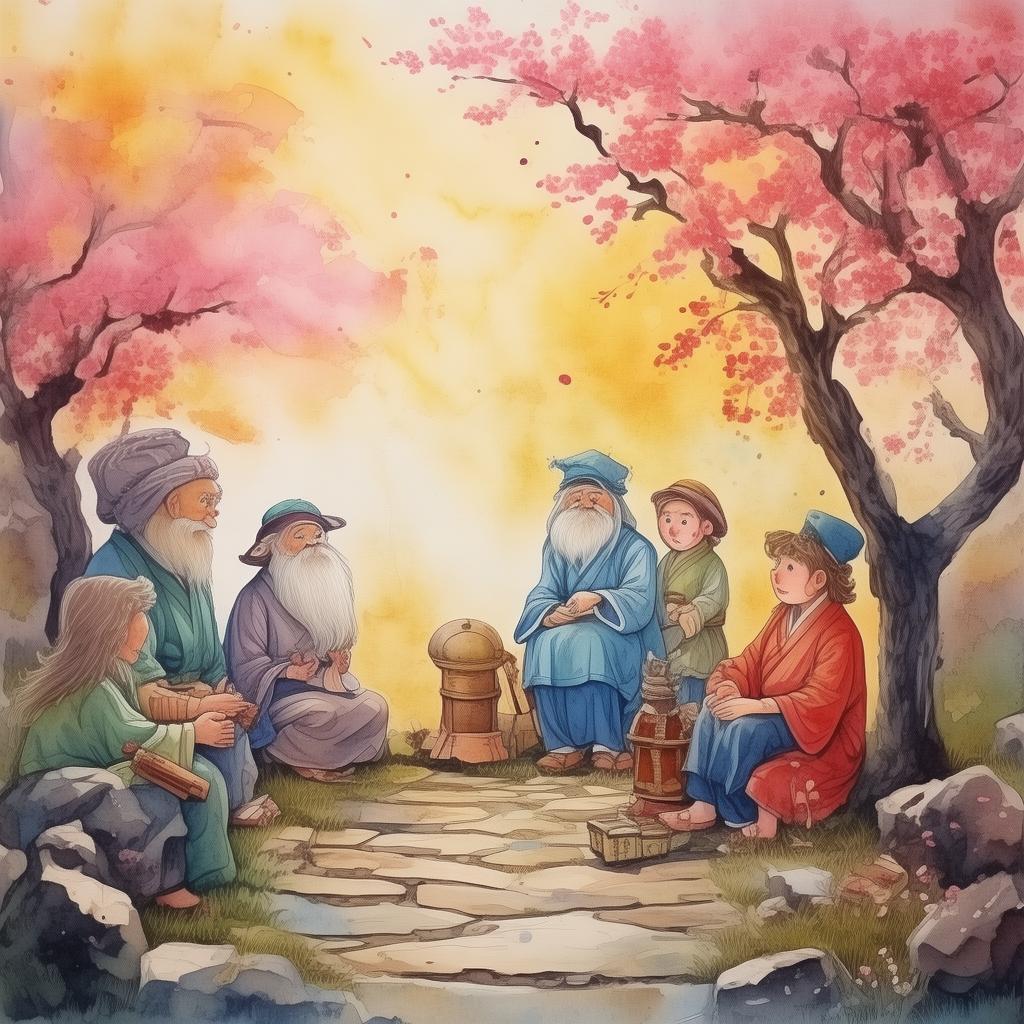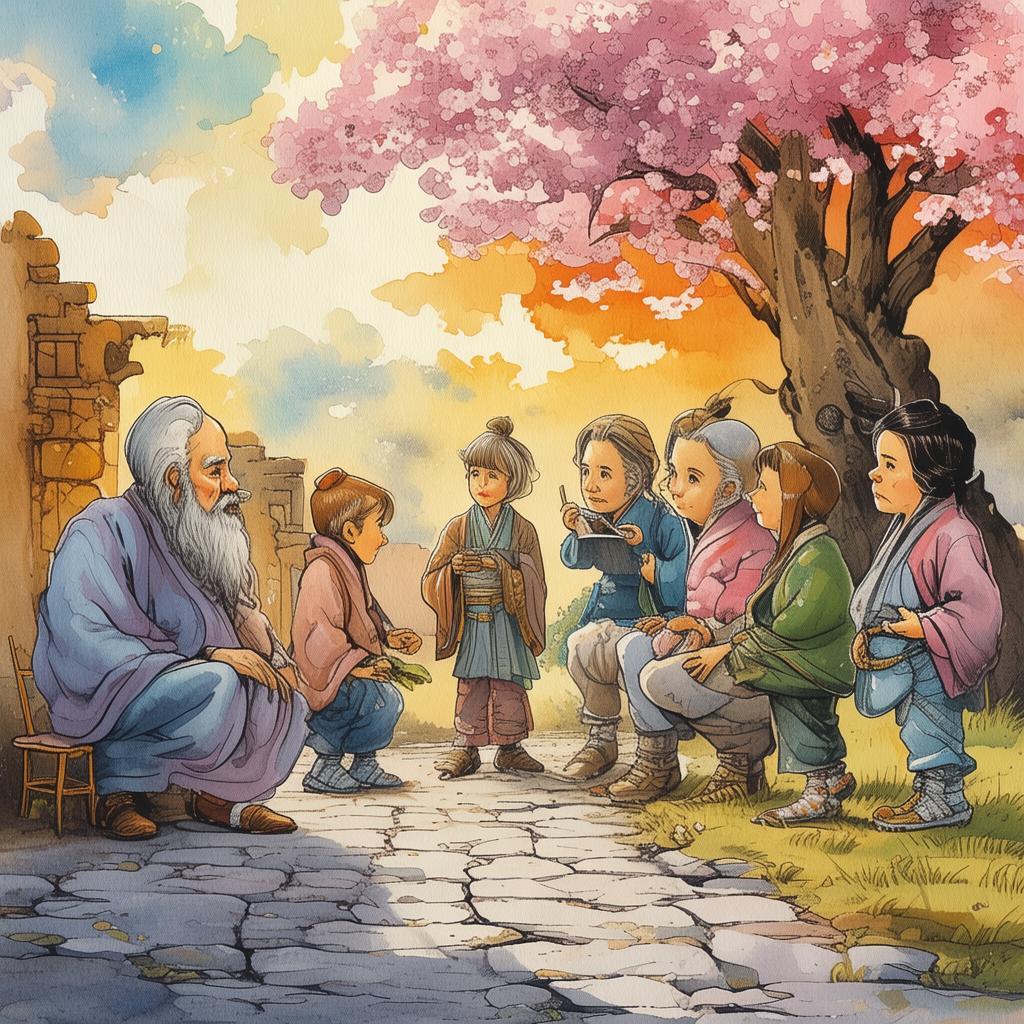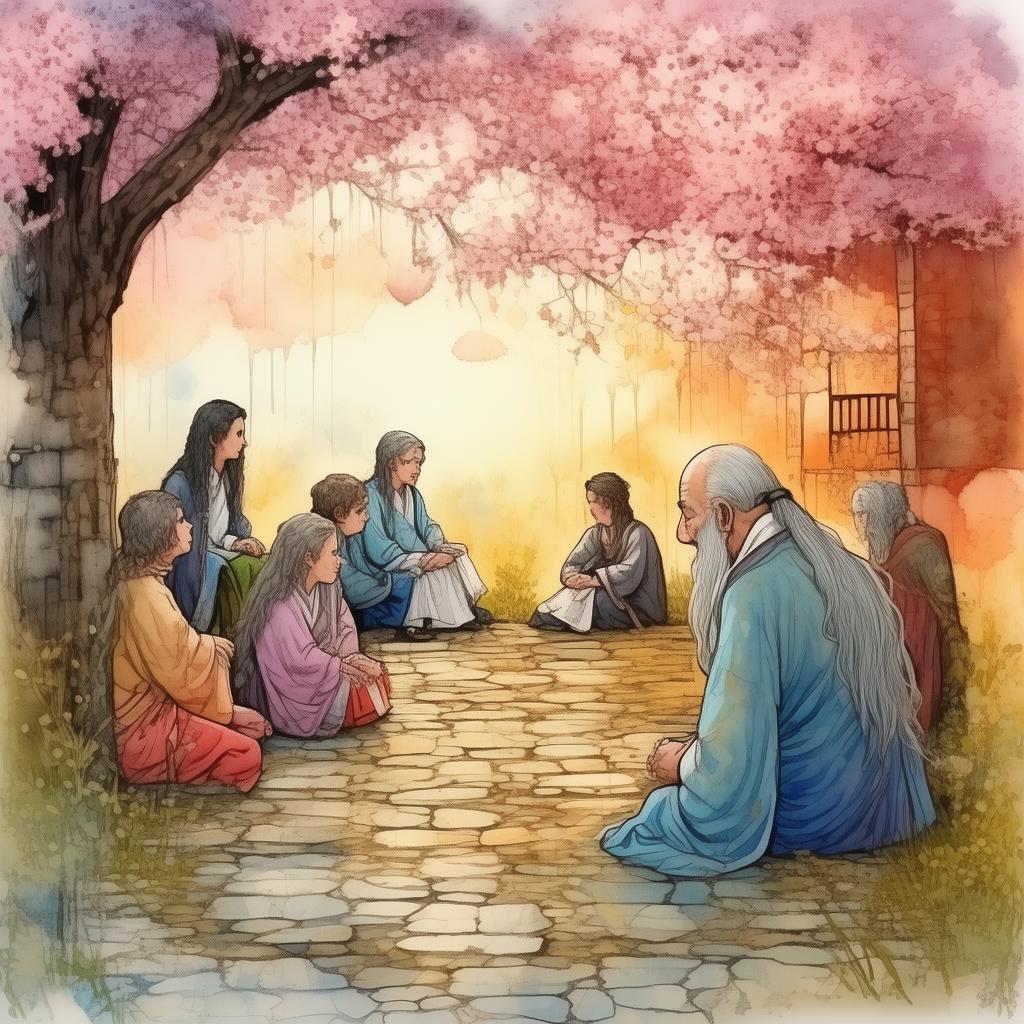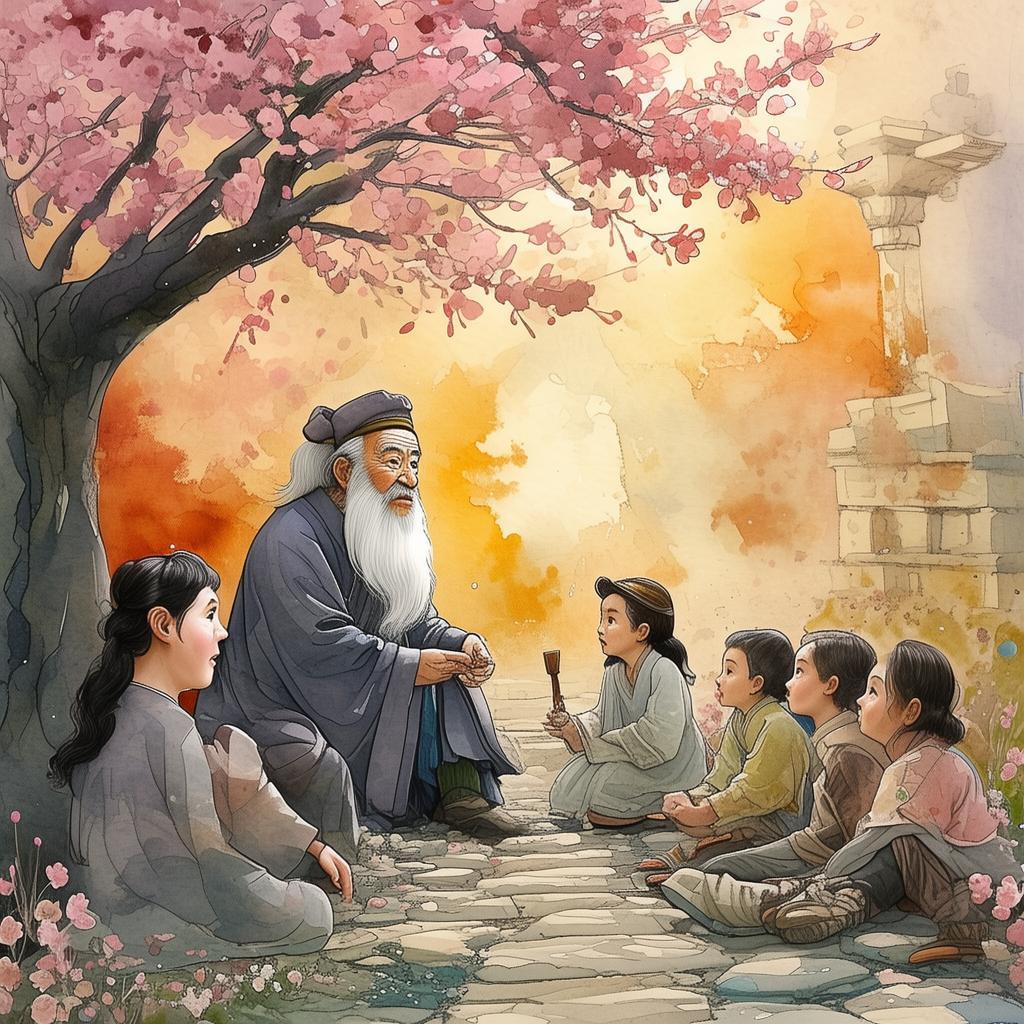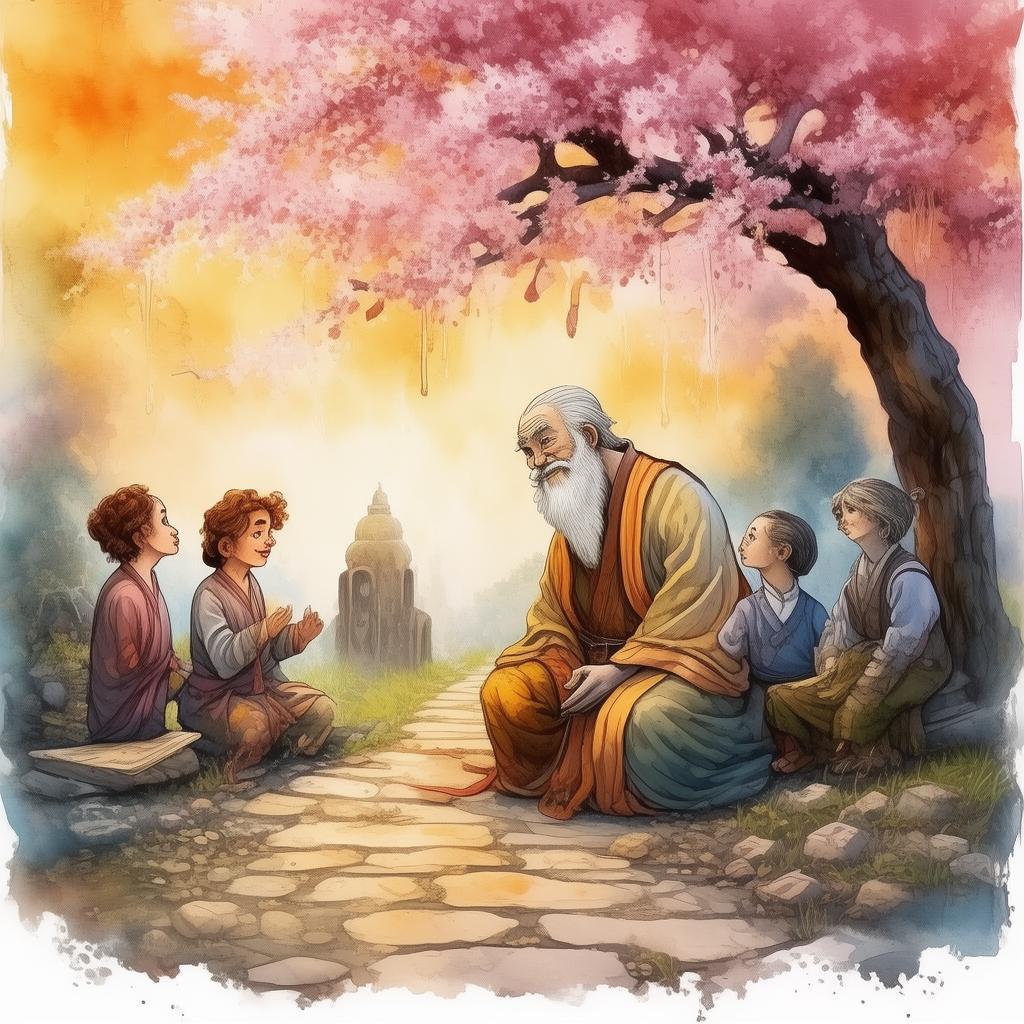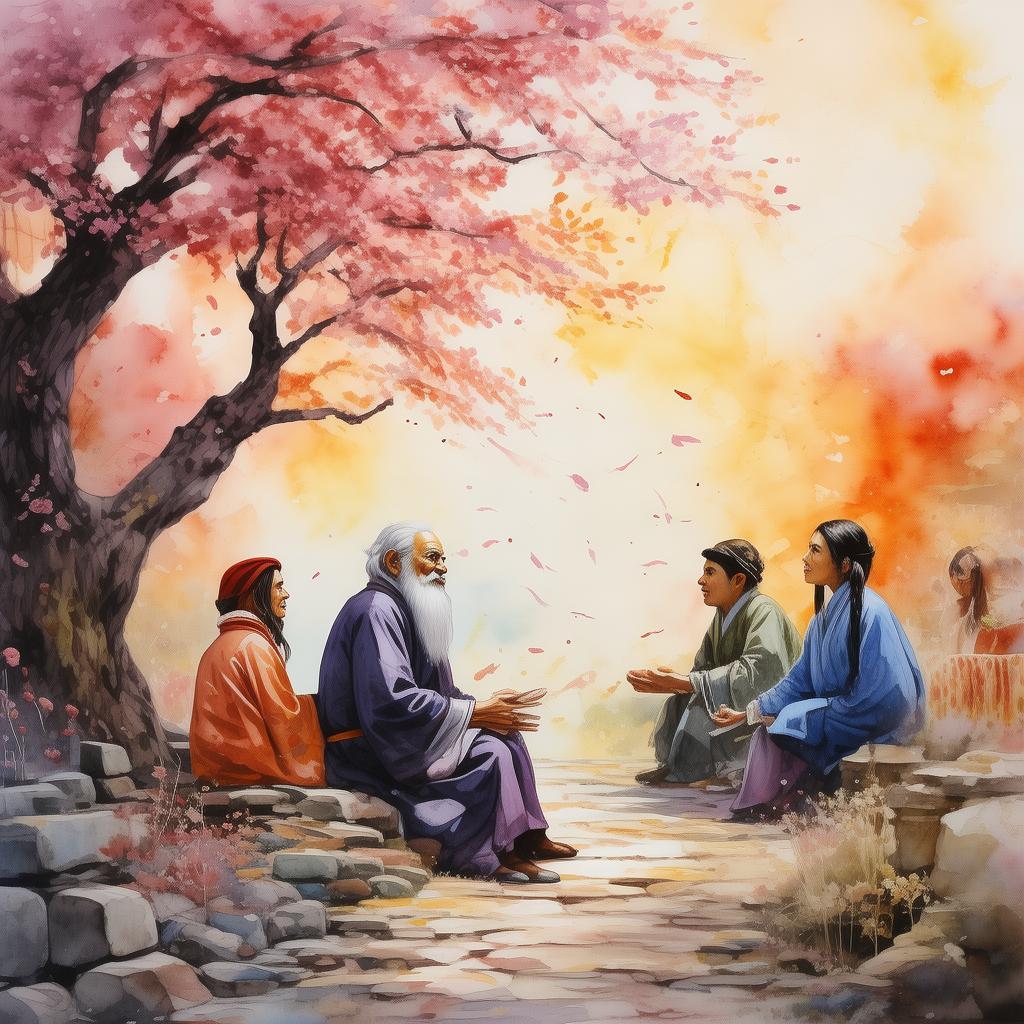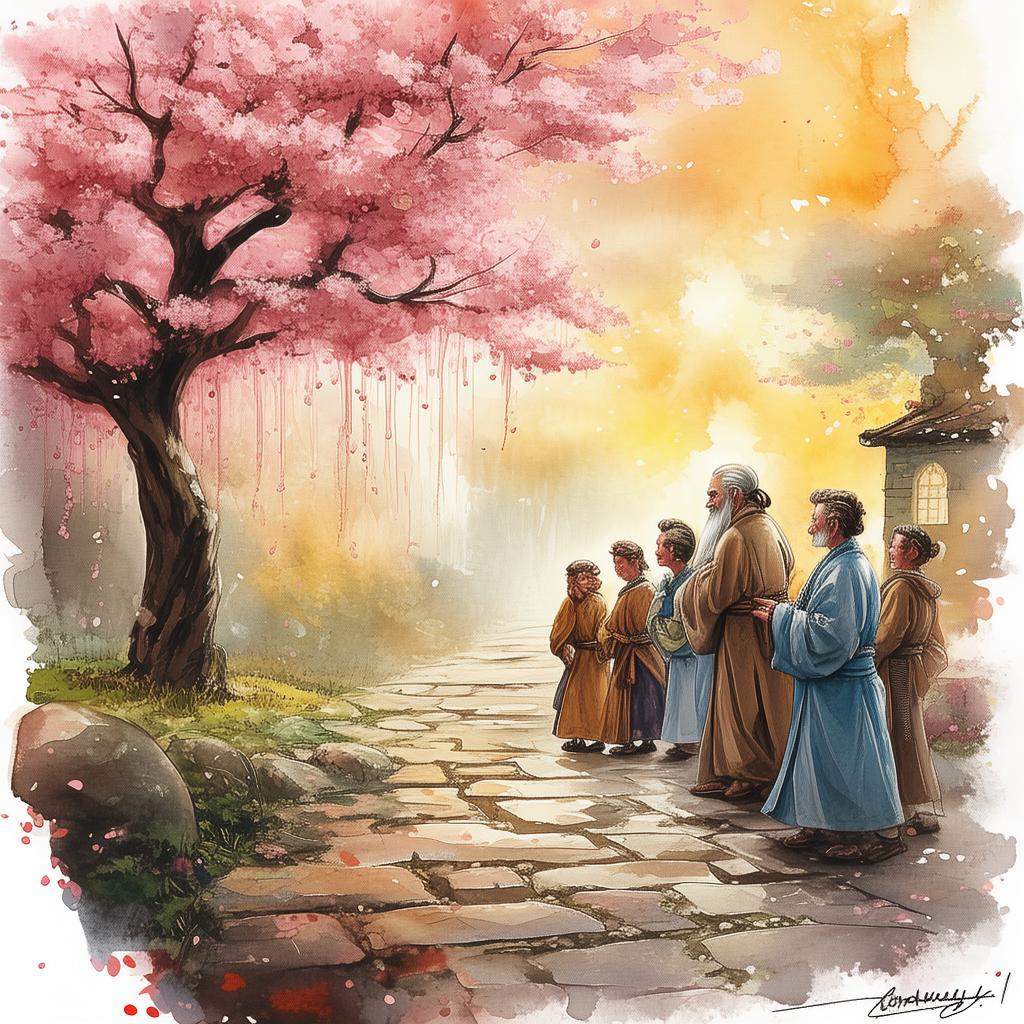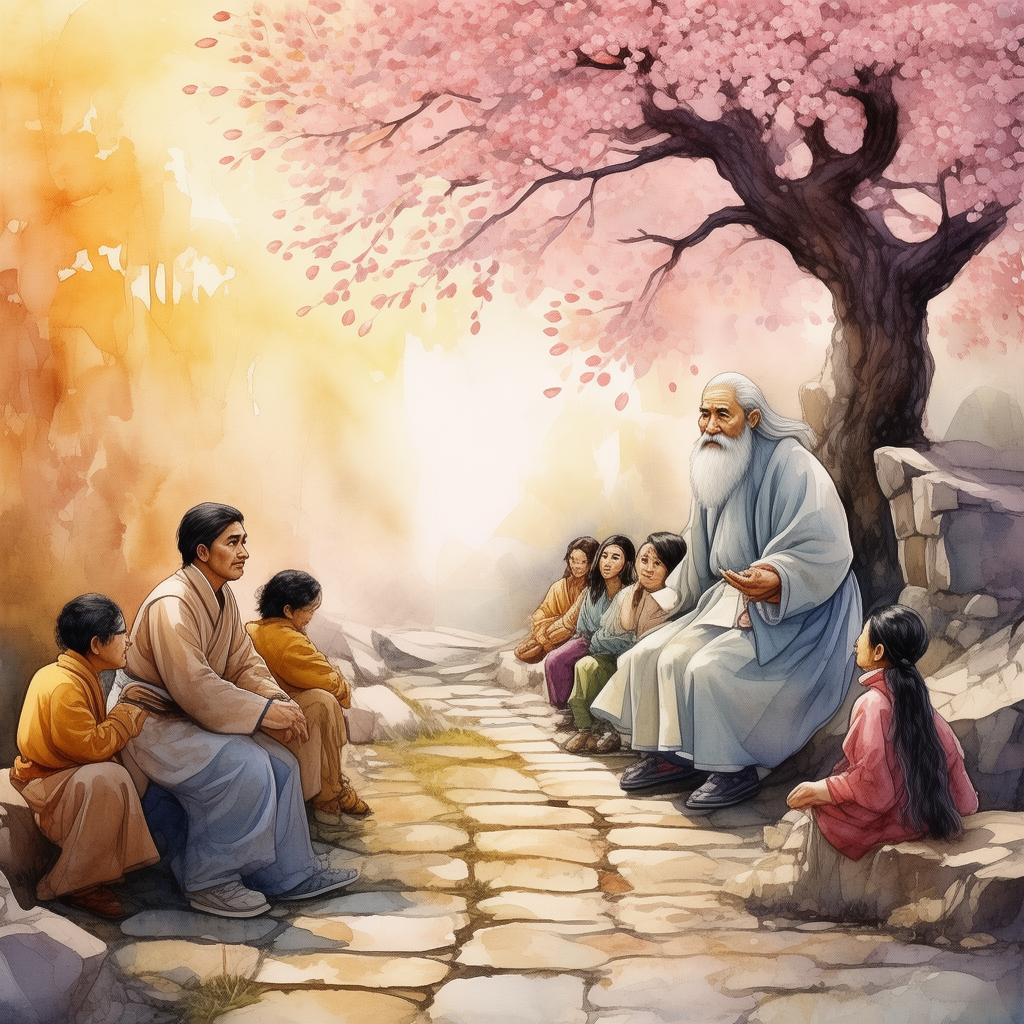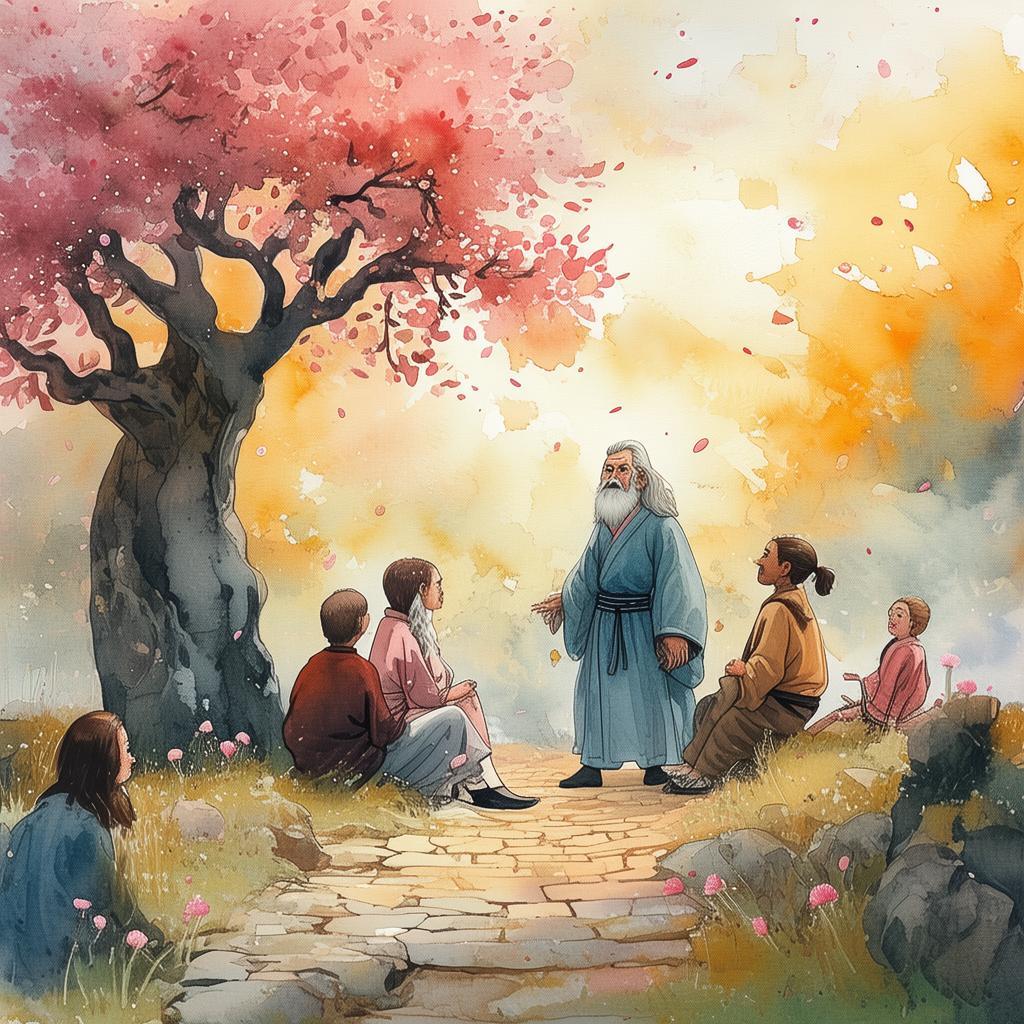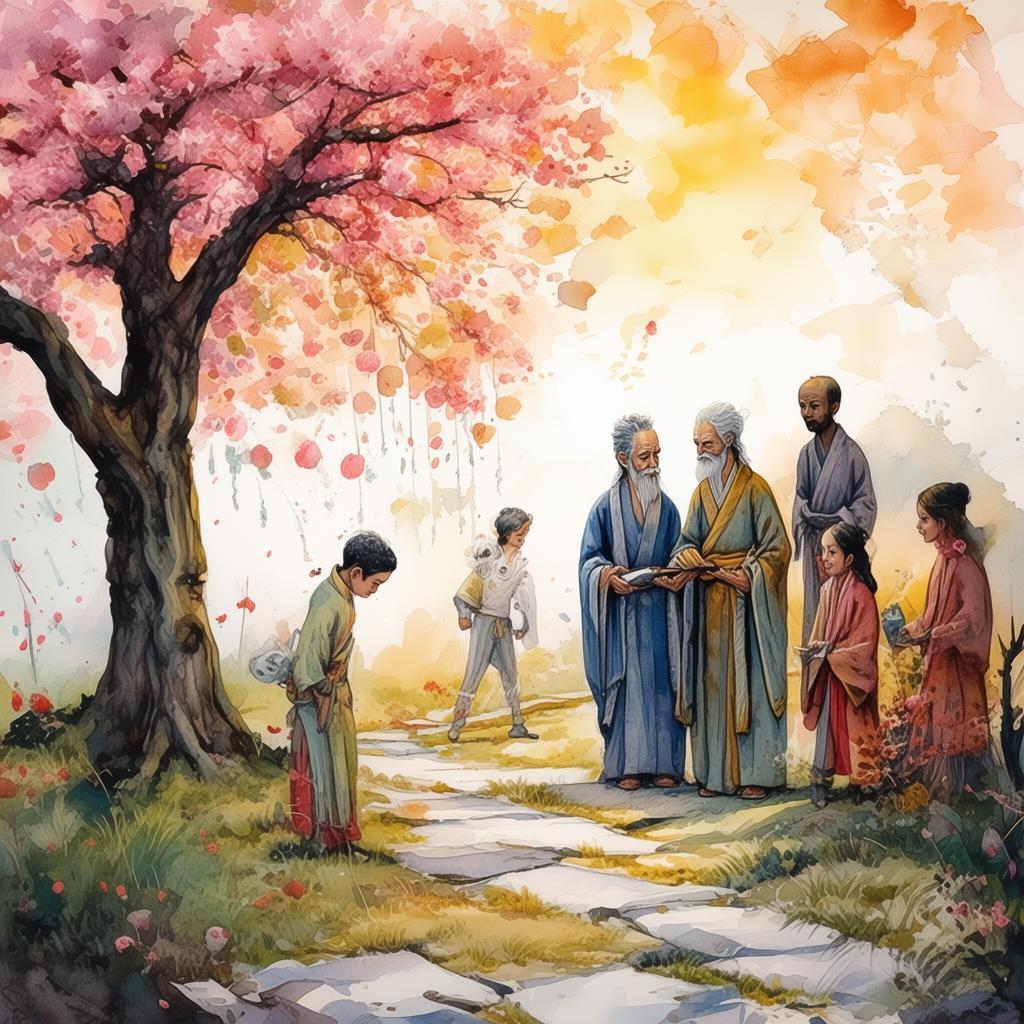Requiem of the Neon Confucian
In the waning days of a world shattered by war and neglect, the neon lights that once adorned the bustling streets of the metropolis now flickered with a haunting glow. The Neon Confucian, a term that once resonated with cultural pride, had become a byword for a world on the brink of collapse. Amidst the ruins, a young man named Li, with his eyes alight with the remnants of hope, sought refuge in the wisdom of his ancestors.
Li was an orphan, a scavenger among the remnants of humanity. The world had become a place of scarcity and fear, where every breath was a gamble and every step a potential trap. He had learned to navigate the dangers of the wasteland by sheer instinct, but it was the idioms and proverbs from the Neon Confucian texts that gave him the edge he needed to survive.
One night, while foraging for supplies in the ruins, Li stumbled upon a hidden archive. Among the dusty scrolls and forgotten knowledge, he found a book titled "Idioms in a Post-Apocalyptic World." The book was a collection of ancient sayings and idioms, each one imbued with a deeper meaning that could be applied to the harsh realities of their new world.
As he delved deeper into the text, Li discovered that the idioms were not just words; they were tools for survival. Each saying was a lesson from the past, a guide to the future. One such saying was "The Heart is the Window to the World," which he interpreted as the importance of inner strength and clarity of thought in the face of adversity.
One fateful day, Li found himself face to face with a gang of scavengers, known as the "Night Howlers," who were notorious for their ruthless tactics. They had cornered him in an old, abandoned shopping mall, their leader, a towering figure known as the "Vulture," eyeing Li's meager possessions with greedy eyes.
"'You have 24 hours to live,' the Vulture's voice was as cold as the metal walls around us," Li remembered, his hands trembling. "But I didn't know it was time to use the idioms."
In the heat of the moment, Li's mind raced. He remembered the idiom "To Turn a Blind Eye," which he interpreted as seeing the truth even when others choose to ignore it. He decided to play along with the Night Howlers, feigning weakness while planning his escape.
As the hours ticked by, Li's mind returned to the Neon Confucian texts. He realized that the gang's leader, despite his brute strength, was also a man of few words, a characteristic that resonated with another idiom: "Silence Speaks Louder than Words." Li began to communicate with the Vulture through subtle nods and gestures, using his body language to convey his intentions.
The climax of their confrontation came when the Vulture, caught off guard by Li's calm demeanor, offered him a truce. "If you can solve my riddle, you live," the Vulture said, his eyes narrowing.
Li, drawing upon the idiom "To Play a Card Close to the Chest," knew he had to be clever. He asked the Vulture to pose the riddle, and the leader replied with a cryptic question: "What has keys but can't open locks?"
Li, who had spent countless nights pondering the texts, quickly answered, "A piano."
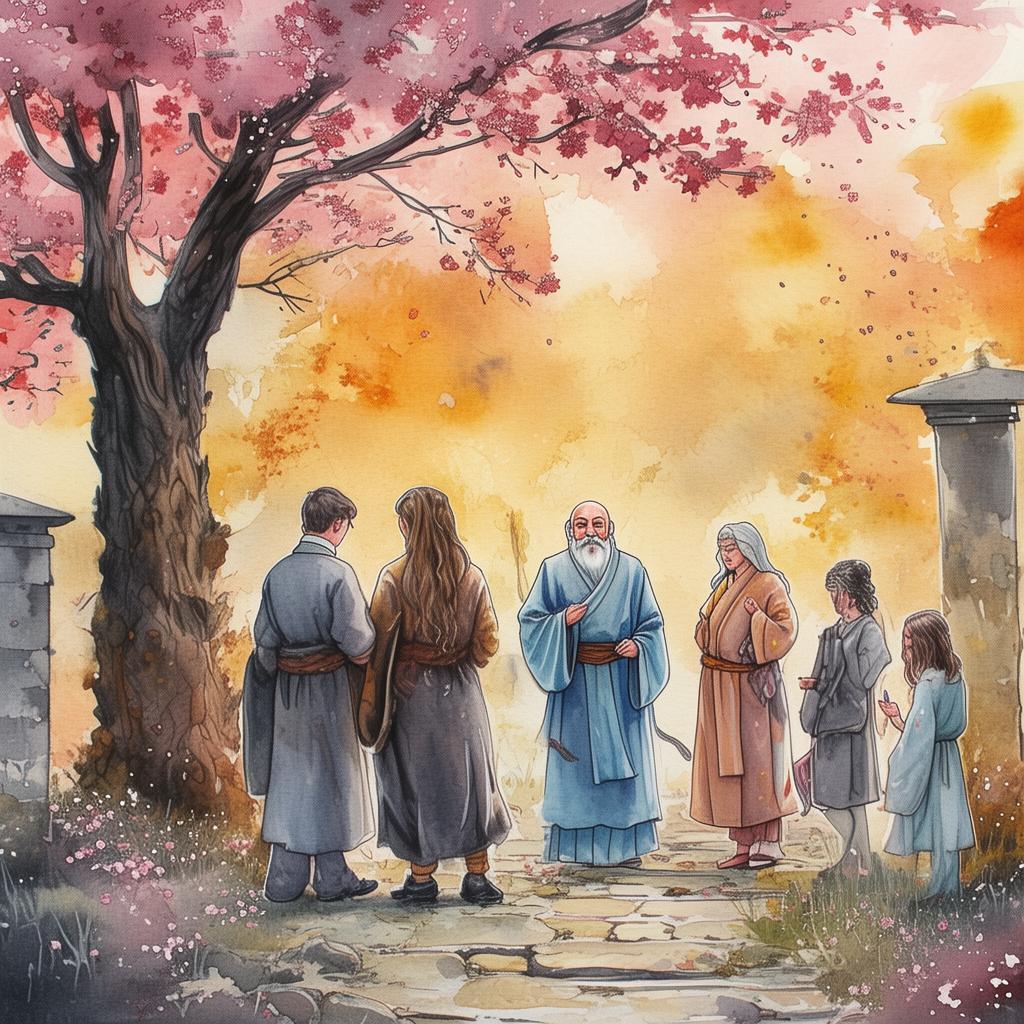
The Vulture's eyes widened in surprise. "You're clever, but not clever enough," he growled, but Li had already made his move. He turned and sprinted towards the exit, the Night Howlers in hot pursuit.
As he raced through the corridors of the shopping mall, Li remembered another idiom, "To Run Faster Than the Wind," and he pushed his body to its limits. He dodged and weaved through the pursuing gang, using his knowledge of the mall's layout to his advantage.
Finally, he burst through the emergency exit, the neon lights of the city now a distant memory as he vanished into the night. The Night Howlers, caught off guard by Li's cunning, watched as he disappeared into the darkness.
Li's survival was a testament to the power of ancient wisdom in a world gone mad. He had not only escaped death but had also discovered the true meaning of the Neon Confucian idioms. In the harsh world he now called home, they were more than just words—they were a beacon of hope, a reminder that even in the darkest times, the light of knowledge could still shine through.
And so, Li continued his journey, carrying the lessons of the Neon Confucian texts close to his heart, knowing that with each step, he was not just surviving, but thriving in a world that had once seemed hopelessly lost.
✨ Original Statement ✨
All articles published on this website (including but not limited to text, images, videos, and other content) are original or authorized for reposting and are protected by relevant laws. Without the explicit written permission of this website, no individual or organization may copy, modify, repost, or use the content for commercial purposes.
If you need to quote or cooperate, please contact this site for authorization. We reserve the right to pursue legal responsibility for any unauthorized use.
Hereby declared.
